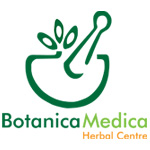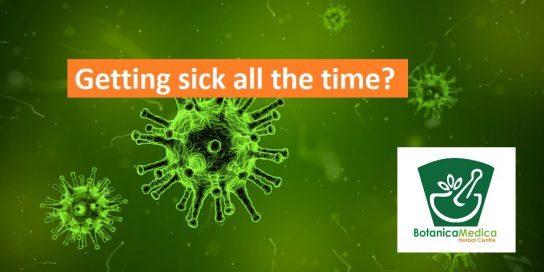Recurrent infection – The Cause and Consequence of Ineffective Immunity
Infectious diseases are usually attributed to the virulence of a pathogen,6 however recurrent infections are a clinical red flag for an ineffective immune response.7 Patients who fall into a repeating cycle of ear, nose, throat or respiratory infections of bacterial or viral origin, have reduced resilience against infection, and suffer ongoing consequences of immune insufficiency.8 While recurrent infections are common in children and seniors due to an immature or reduced immune capacity;9, 10 they are also prevalent in some adults despite what should be a mature and robust immune system. Clinically, these patients present with bacterial or viral infections that appear to resolve, only to return a few weeks or months later; many of these patients resort to repeated courses of antibiotics. In addition, patients whose immune systems lack resilience complain they ‘have never been well since’ an infection; and/or struggle to regain their vitality after a bout of illness. This loss of a functional immune response leaves patients susceptible to further infection. A solution-based approach calls for strengthening and rebuilding the patient’s immune response, which begins with understanding the necessary mechanisms which underlie immune resilience.
Deterioration of Immune Defence
The tiered design of the immune system prevents pathogenic invasion through structural, nonspecific and mediated immune responses.11 However, disturbance in immune homeostasis subverts resistance against pathogens.12 Frequent antibiotic use disrupts immune resilience afforded by commensal bacteria; resulting in the loss of microbiome-mediated antimicrobial activities and protection against pathogen adherence.13 Recurrent infections are also influenced by the biological effects of stress, including psychological trauma, physical and mental stress.14 Furthermore, a lack of specific nutrients such as zinc and vitamin D are implicated in compromised epithelial defences and protection against infectious agents.15, 16 Symptoms of recurrent infection influence physical, mental and emotional health and are perpetuated by imbalances in nutritional and microbiome health. The complexity of overlapping drivers in recurrent infection are a confusing maze for patients to navigate alone, highlighting the significance of individualised clinical care.
Breaking the Cycle and Regaining Resilience
In order to break the cycle of re-infection, it is necessary to rehabilitate and regenerate the immune response. In addition to encouraging a healthy lifestyle, stress management, adequate nutrition, hydration and rest; Practitioners can also specifically enhance immune activity through targeting pathways which facilitate immunological resistance and surveillance. The gut-associated lymphoid tissue (GALT) comprises 50-60% of the entire immune system and stimulates anti-infective activity through promoting secretory immunoglobulin A (sIgA)* and T and B lymphocyte antigen responsiveness.17 Further, immune modulating pathways mediated by toll-like receptors (TLRs) are considered to be the main mechanism of natural immunostimulants, amplifying immune surveillance and responsivity.18
Highly valued for their immune stimulating properties, medicinal mushrooms Trametes versicolor (coriolus) and Ganoderma lucidum (reishi), combined with Astragalus membranaceus (astragalus) comprise Mushrooms and Astragalus for Immune System Support. This potent combination specifically targets GALT19 and TLR20 pathways to enhance immune resilience, promoting immune activity and resistance against infection; clinically relevant for immunocompromised patients or those experiencing recurrent bacterial, fungal or viral infections.
Potent Polysaccharides Promote Immune Resistance
Mushroom-derived polysaccharides are highly regarded for their prophylactic ability in activating the immune system and protecting against infectious agents.21 Polysaccharide molecules modulate the immune response via GALT and, in turn, promote mucosal immunity against pathogenic invasion.22 For example, Ganoderma lucidum proteoglycans (GLPGs) enhance epithelial defence through boosting sIgA; reducing mucosal inflammation and enhancing immune function. Moreover, GLPGs activate innate anti-infective and anti-inflammatory responses,23 enhance macrophage activity and promote T helper cells and natural killer (NK) cells.24 Of additional benefit, coriolus polysaccharopeptides (PSPs) exert significant prebiotic activity,25 buffering against the negative effects of antibiotic therapy on the microbiome. As shown in Figure 1, mushroom polysaccharides collectively enhance recognition of pathogens, resulting in an improved immune response and greater resistance against infection.
 Figure 1: The Immunomodulatory Effects of Mushroom Polysaccharides.
Figure 1: The Immunomodulatory Effects of Mushroom Polysaccharides.
In addition, astragalus contains β-D-glucans; polysaccharides demonstrated to modulate the activity of macrophages, T helper cells, NK cells and other effector cells.26 Astragalus also increases the number and activity of T regulatory cells, promoting functional T cell activity27 while also reducing inflammatory cytokines, interferon gamma, tumour necrosis factor alpha (TNF-α) and interleukin 17 (IL-17); all implicated in immune dysregulation.28, 29 The combination of reishi, coriolus and astragalus in Mushrooms and Astragalus for Immune System Support delivers strong immune modulatory activity, promoting resistance against recurrent infections (Figure 2).
Powerful Treatment of Infection and Relapse Reduction
Medicinal mushrooms mount a strong defence against viral infections. Clinically relevant research demonstrates that two months’ supplementation with coriolus and reishi promoted clearance of human papilloma virus (HPV) in a significant 88% of HPV positive participants, compared to 5% in the non-intervention group.30 In addition, coriolus taken for 12 months has been shown to effectively reduce low-grade squamous intraepithelial lesions (LSIL)✝ (caused by HPV) to 11% prevalence, compared to 50% in the control group.31 Immune enhancing properties of coriolus and reishi have also been shown to reduce Herpes simplex virus 1 and 2,32 indicating versatile therapeutic effects through enhancing immune resilience against sinister pathogens. Furthermore, traditional use of mushroom extracts promotes symptomatic relief through reducing mucus congestion,33, 34 fatigue, and debility.35
 Figure 2 : Immune Modulating Mechanisms of Coriolus, Reishi and Astragalus.
Figure 2 : Immune Modulating Mechanisms of Coriolus, Reishi and Astragalus.
Strengthening the Fibres in the Fabric of Resilience
In addition to immune stimulation, clinical outcomes in recurrent infections are further influenced by promoting restorative lifestyle choices, correcting nutritional deficiencies, addressing ongoing mental and physical stress, chemical exposure, and imbalances in the gut microbiota. As such, Practitioners are recommended to also prescribe zinc, vitamins C and D, and specific probiotic strains as required, in order to support immune resilience. Mushrooms and Astragalus for Immune System Support offers Practitioners a potent combination of mushroom and botanical extracts that may be used with or as an alternative to antibiotic therapy, to bolster patients’ immune defence mechanisms and effectively break the cycle of recurrent infection.
*Secretory IgA (sIgA) is the principle antibody class which lines the surfaces of the gastrointestinal, respiratory and genitourinary tracts and mediates several protective actions against pathogens.
✝Persistent infection with carcinogenic HPV is linked to high-grade lesions and cervical cancer within the cervix.
References
- Ramakrishnan VR, Mace JC, Soler ZM, Smith TL. Examination of high-antibiotic users in a multi-institutional cohort of chronic rhinosinusitis patients. Int Forum Allergy Rhinol. 2017 Apr;7(4):343-351. doi: 10.1002/alr.21903.
- Ubeda C, Pamer EG. Antibiotics, microbiota, and immune defense. Trends Immunol. 2012 Sep;33(9):459-66. doi: 10.1016/j.it.2012.05.003.
- Van Schrojenstein Lantman M, Mackus M, Otten LS, de Kruijff D, van de Loo AJ, Kraneveld AD, et al. Mental resilience, perceived immune functioning, and health. J Multidiscip Healthc. 2017 Mar 21;10:107-112. doi: 10.2147/JMDH.S130432.
- Paśnik J. Vaccines nonspecific – immunostimulation in patients with recurrent respiratory infections. Otolaryngol Pol. 2016 Dec 20;70(6):31-39. doi: 10.5604/01.3001.0009.4819.
- Oshio T, Tsutsumi A, Inoue A, Suzuki T, Miyaki K. The reciprocal relationship between sickness presenteeism and psychological distress in response to job stressors: evidence from a three-wave cohort study. J Occup Health. 2017 Nov 25;59(6):552-561. doi: 10.1539/joh.17-0178-OA.
- Rasko DA, Sperandio V. Anti-virulence strategies to combat bacteria-mediated disease. Nat Rev Drug Discov. 2010 Feb;9(2):117-28. doi: 10.1038/nrd3013.
- Hernandez-Trujillo VP. Approach to Children with Recurrent Infections. Immunol Allergy Clin North Am. 2015 Nov;35(4):625-36. doi: 10.1016/j.iac.2015.07.005.
- Hernandez-Trujillo VP. Approach to Children with Recurrent Infections. Immunol Allergy Clin North Am. 2015 Nov;35(4):625-36. doi: 10.1016/j.iac.2015.07.005.
- Paśnik J. Vaccines nonspecific – immunostimulation in patients with recurrent respiratory infections. Otolaryngol Pol. 2016 Dec 20;70(6):31-39. doi: 10.5604/01.3001.0009.
- Targonski PV, Jacobson RM, Poland GA. Immunosenescence: role and measurement in influenza vaccine response among the elderly. Vaccine. 2007 Apr 20;25(16):3066-9.
- Paśnik J. Vaccines nonspecific – immunostimulation in patients with recurrent respiratory infections. Otolaryngol Pol. 2016 Dec 20;70(6):31-39. doi: 10.5604/01.3001.0009.
- Paśnik J. Vaccines nonspecific – immunostimulation in patients with recurrent respiratory infections. Otolaryngol Pol. 2016 Dec 20;70(6):31-39. doi: 10.5604/01.3001.0009.
- Ubeda C, Pamer EG. Antibiotics, microbiota, and immune defense. Trends Immunol. 2012 Sep;33(9):459-66. doi: 10.1016/j.it.2012.05.003.
- Glaser R, Kiecolt-Glaser JK. Stress-induced immune dysfunction: implications for health. Nat Rev Immunol. 2005 Mar;5(3):243-51. doi: 10.1038/nri1571.
- Assa A, Vong L, Pinnell LJ, Avitzur N, Johnson-Henry KC, Sherman PM. Vitamin D deficiency promotes epithelial barrier dysfunction and intestinal inflammation. J Infect Dis. 2014 Apr 21;210(8):1296-305.
- Zhong W, McClain CJ, Cave M, Kang YJ, Zhou Z. The role of zinc deficiency in alcohol-induced intestinal barrier dysfunction. Am J Physiol Gastrointest Liver Physiol. 2010 Feb 18;298(5):G625-33.
- Huang X, Shaoping N, Mingyong X. Interaction between gut immunity and polysaccharides. Crit Rev Food Sci Nutr. 2017 Sep 22;57(14):2943-2955. doi: 10.1080/10408398.2015.1079165.
- Paśnik J. Vaccines nonspecific – immunostimulation in patients with recurrent respiratory infections. Otolaryngol Pol. 2016 Dec 20;70(6):31-39. doi: 10.5604/01.3001.0009.
- Jin M, Zhu Y, Shao D, Zhao K, Xu C, Li Q. Effects of polysaccharide from mycelia of Ganoderma lucidum on intestinal barrier functions of rats. Int J Biol Macromol. 2017 Jan;94(Pt A):1-9.
- Lull C, Wichers HJ, Savelkoul HFJ. Antiinflammatory and immunomodulating properties of fungal metabolites. Mediators Inflamm. 2005 (2):63-80. doi:10.1155/MI.2005.63.
- Paśnik J. Vaccines nonspecific – immunostimulation in patients with recurrent respiratory infections. Otolaryngol Pol. 2016 Dec 20;70(6):31-39. doi: 10.5604/01.3001.0009.
- Huang X, Shaoping N, Mingyong X. Interaction between gut immunity and polysaccharides. Crit Rev Food Sci Nutr. 2017 Sep 22;57(14):2943-2955. doi: 10.1080/10408398.2015.1079165.
- He X, Niu X, Li J, Xu S, Lu A. Immunomodulatory activities of five clinically used Chinese herbal polysaccharides. J Experimental Integrative Med. 2012:2(1):15-27.
- He X, Niu X, Li J, Xu S, Lu A. Immunomodulatory activities of five clinically used Chinese herbal polysaccharides. J Experimental Integrative Med. 2012:2(1):15-27.
- Pallav K, Dowd SE, Villafuerte J, Yang X, Kabbani T, Hansen J, et al. Effects of polysaccharopeptide from Trametes versicolor and amoxicillin on the gut microbiome of healthy volunteers: a randomized clinical trial. Gut Microbes. 2014 Jul 1;5(4):458-67.
- He Y, Du M, Gao Y, Liu H, Wang H, Wu X, et al. Astragaloside IV attenuates experimental autoimmune encephalomyelitis of mice by counteracting oxidative stress at multiple levels. PLoS One. 2013 Oct 4;8(10):e76495.
- Braun L, Cohen M. Herbs and natural supplements: an evidence-based guide. 4th ed. Vol 2. Sydney (AU): Elsevier/Churchill Livingstone; 2015. p. 41-8.
- He Y, Du M, Gao Y, Liu H, Wang H, Wu X, et al. Astragaloside IV attenuates experimental autoimmune encephalomyelitis of mice by counteracting oxidative stress at multiple levels. PLoS One. 2013 Oct 4;8(10):e76495.
- He YX, Du M, Shi HL, Huang F, Liu H, Wu H, et al. Astragalosides from Radix Astragali benefits experimental autoimmune encephalomyelitis in C57BL /6 mice at multiple levels. BMC Complement Altern Med. 2014 Aug 24;14:313.
- Donatini B. Control of oral human papillomavirus (HPV) by medicinal mushrooms, Trametes versicolor and Ganoderma lucidum: a preliminary clinical trial. Int J Med Mushrooms. 2014;16(5):497-8.
- Couto S. Evaluation of Coriolus versicolour supplementation in HPV patients. Clinical Journal of Mycology. 2007;2(1):1-5.
- Donatini B. Prevention des recurrences d’herpes par l’association Ganoderma lucidum + Coriolus versicolour. Phytotherapie. 2010;8:259-60.
- The State Pharmacopoeia Commission of P.R. China. Pharmacopoeia of the People’s Republic of China. Vol.1. Beijing (CN): China Medical Science Press; 2010. p. 198-9.
- Bensky D, Clavey S, Stoger E, Gamble A. Chinese herbal materia medica. 3rd ed. Seattle (WA): Eastland Press; 2004. p. 935-7.
- The State Pharmacopoeia Commission of P.R. China. Pharmacopoeia of the People’s Republic of China. Vol.1. Beijing (CN): China Medical Science Press; 2010. p. 58-60.


Recent Comments